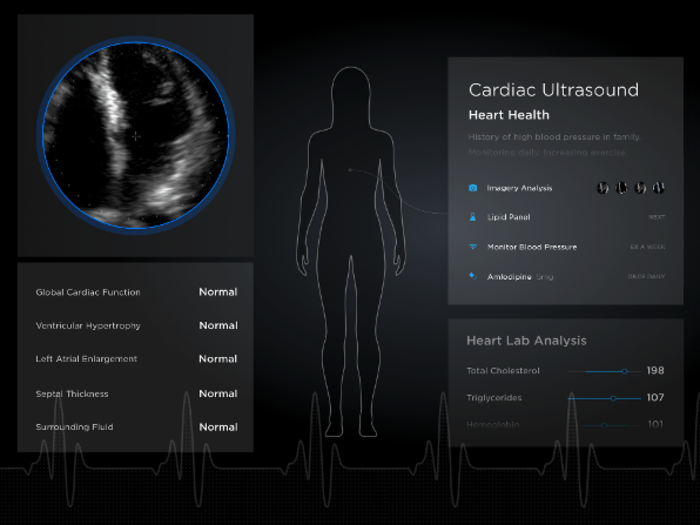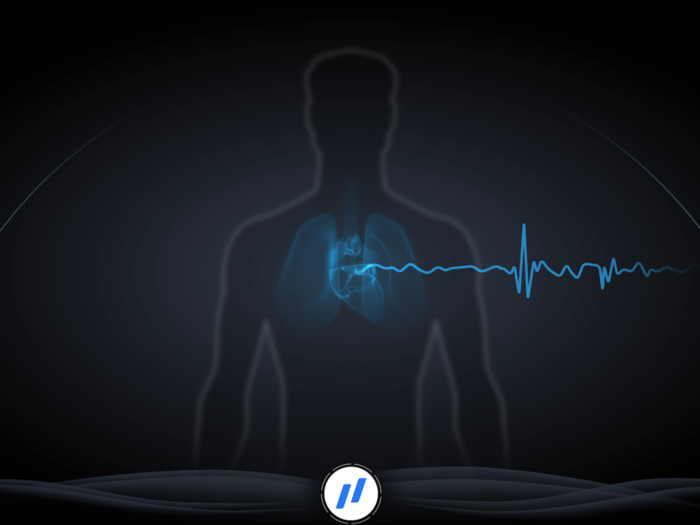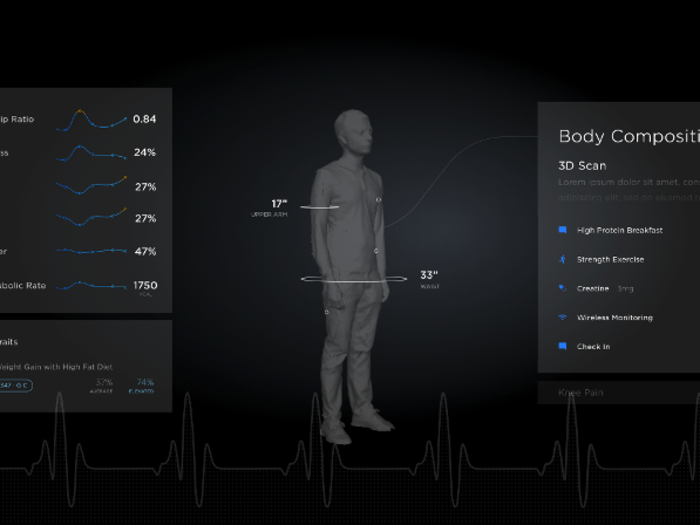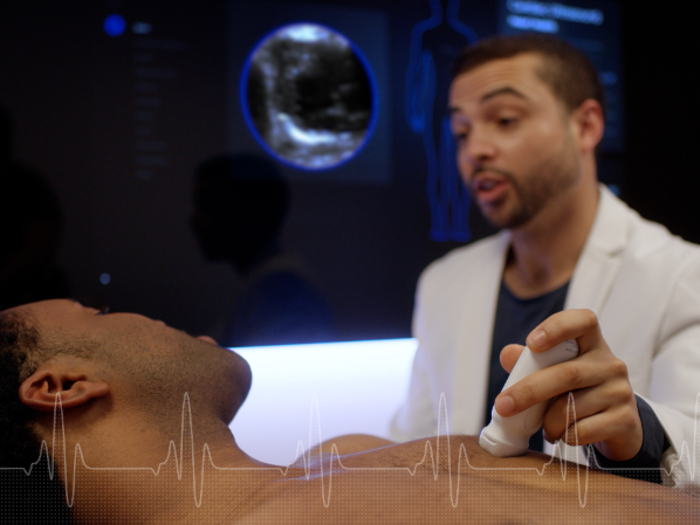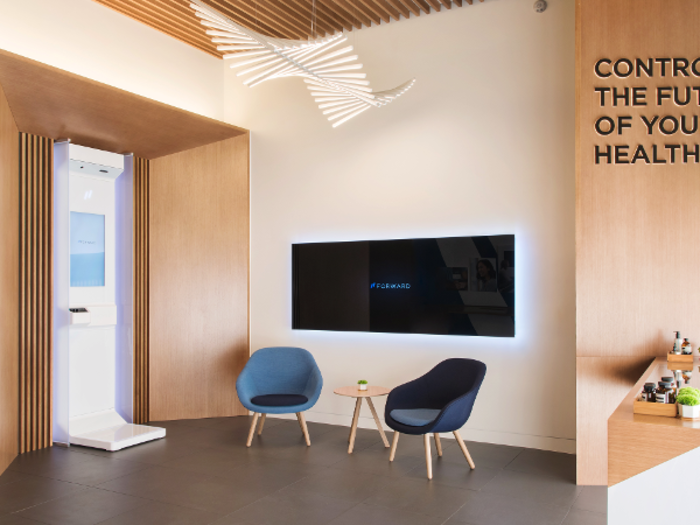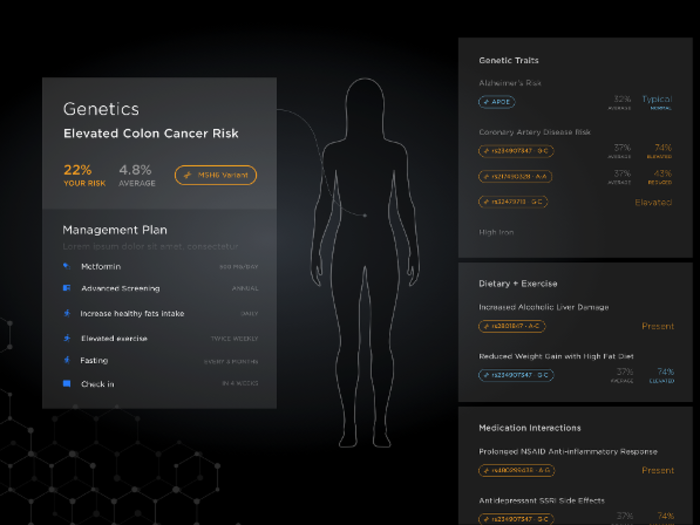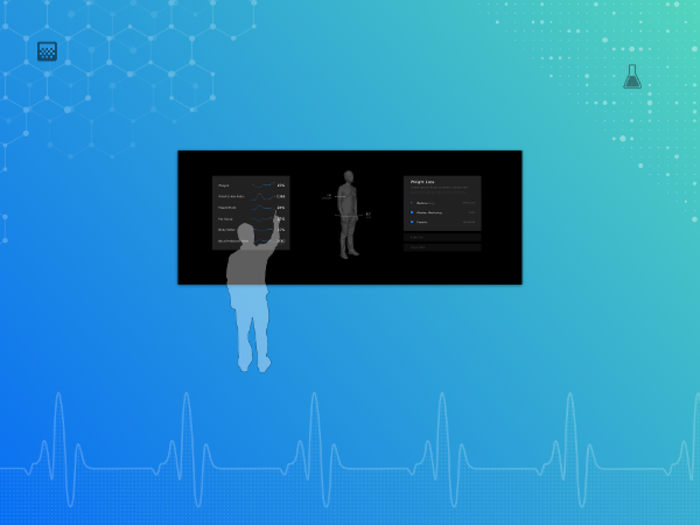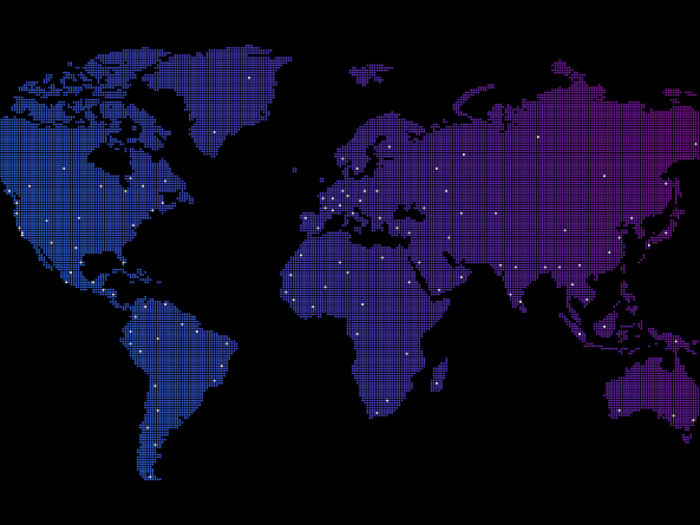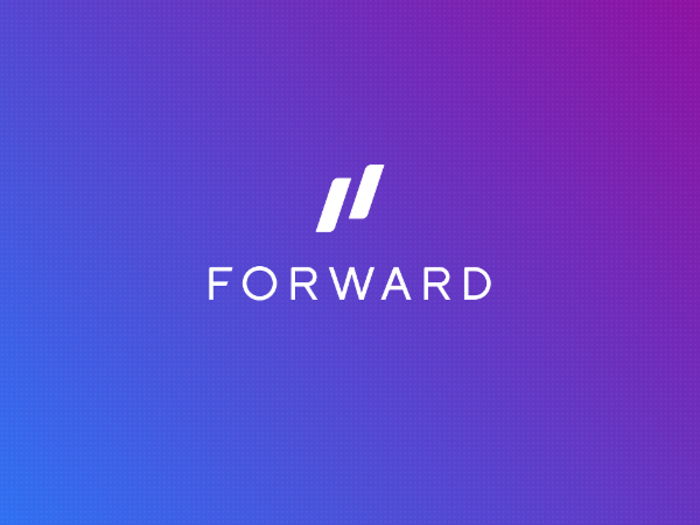At the conference, Aoun used his brother's recent heart attack as an example as to why reactive healthcare can be problematic.
“Our cardiovascular ultrasound, that our doctors can take to your carotid artery and your heart so you can literally see how your valves are opening and closing live right in front of you," he said. "The first time my brother had this done was in the ER when he was literally having a heart attack. If we had just listened to these clues a decade prior, we could have had a real chance to prevent it."
"The sound of your heart is it speaking to us. There is data in your everyday."
Forward begins by "looking for clues in the past" of each patient, Aoun explained. It does that by digitizing old medical records and using advanced AI technology to get a better picture of each patient.
A typical doctor visit at Forward starts with a 3D body scan, measuring things like resting metabolic rate (when your body is at ease) and body composition.
"We take a millimeter-precision body model so we can listen to the clues. Even things as simple as your hip-to-waist ratio are good predictors of whether you are going to develop heart disease.”
The body scan and an EKG take less than two minutes to complete at Forward, said Aoun. Forward is also located in convenient places, like shopping malls in major cities for those with busy schedules.
The startup has three locations in Los Angeles, one in San Francisco, and two in New York City.
"We sequence your DNA to equip doctors with 3 billion clues about you."
Forward also analyzes genetic data to determine whether or not a patient is prone to hereditary diseases, like the gene mutation that causes colon cancer.
"When you combine all the clues, that is how you change healthcare," said Aoun.
Patients can monitor their preventative care plan on the Forward app, plugging in data points every day, and the app is compatible with some wearable tech products like the Apple Watch.
"Our vision is to create the first healthcare system at scale. When you think of scale in terms of healthcare, what do you think of?" asked Aoun.
Aoun said Kaiser is one of a few healthcare companies in the industry that is changing the way patients receive care.
"Kaiser has 11.7 million lives, that’s less than three percent of the United States. If Kaiser was a tech company, you would have never heard of it and you wouldn’t have the app on your phone," he said. "Why haven’t they been able to scale to billions of users like tech companies have? Well, it turns out that $200,000 a year doctors don’t scale to the middle of India and the middle of Rwanda very well."
Aoun concluded his conference presentation by saying, "We want to listen at scale. We want to build the first billion-person healthcare system."

